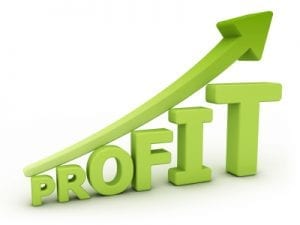 Many of the most successful business owners are great with numbers. They pride themselves on their ability to crunch the numbers and assess whether a business as a whole, or a particular aspect of a business, is operating effectively. There is a reason that so many successful business people are great with numbers; it is a crucial aspect to long-term success. For small businesses, especially, having a deft command of the numbers can be the difference between rapid growth and mistakes that can threaten the very existence of a business in its early stages. While the analytic, quantitative thinking necessary to maintain an awareness of the numbers is certainly an asset, there are other skills that businesses need to rely on as well. For example, being a math whiz with a thorough grasp of a business’s numbers does not necessarily imply the ability to look at the right numbers at the right time. Often, whether or not an aspect of a business is successful requires a more holistic diagnosis that looks at how each of the numbers fit together within the larger business process. This more holistic mode of thinking is much different than straightforward analysis and requires some degree of creative thinking. There are many ways, as it turns out, to measure business success, and different ways may be called for at different times. Here are some measurements businesses and financial consulting firms use as indicators of success.
Many of the most successful business owners are great with numbers. They pride themselves on their ability to crunch the numbers and assess whether a business as a whole, or a particular aspect of a business, is operating effectively. There is a reason that so many successful business people are great with numbers; it is a crucial aspect to long-term success. For small businesses, especially, having a deft command of the numbers can be the difference between rapid growth and mistakes that can threaten the very existence of a business in its early stages. While the analytic, quantitative thinking necessary to maintain an awareness of the numbers is certainly an asset, there are other skills that businesses need to rely on as well. For example, being a math whiz with a thorough grasp of a business’s numbers does not necessarily imply the ability to look at the right numbers at the right time. Often, whether or not an aspect of a business is successful requires a more holistic diagnosis that looks at how each of the numbers fit together within the larger business process. This more holistic mode of thinking is much different than straightforward analysis and requires some degree of creative thinking. There are many ways, as it turns out, to measure business success, and different ways may be called for at different times. Here are some measurements businesses and financial consulting firms use as indicators of success.
Bread And Butter
Sometimes, quantitative and financial success can be deceptive. For instance, a particular business may have recently had a successful month by financial standards; however, the success may have been due to a temporary lack of competition due to a competitor’s recent closing, or some other market factor that has little to do with how well a business is operating. The misleading nature of metrics extends to losses as well. Perhaps a bad month or quarter had more to do with an economic downturn and thus a more frugal customer base. For these reasons, a more sustainable assessment of a business’s success can be found by looking at a company’s bread and butter—this means whatever the company does best, or its core function. The core function of a business often comes down simply to the products or services it provides. An analysis of how well a company is providing these products or services—from a price, customer satisfaction or other perspective—is a more sustainable way of assessing and projecting the long-term health of the business.
Business Efficiency
Again, short-term success can be misleading. If a company is thriving due to the outstanding skill and dedication of only one employee, for example, then its efficiency may be at risk. By analyzing the efficiency of a business, how effectively it is using its limited time and resources, one can glean valuable information about how it is set up for success no matter what circumstances come its way.
Business Finances

Of course, the raw financial situation of a business is still relevant, as it determines, at least in the short term, whether any of the other factors will matter in the long term. Businesses can look at simple cash flow, but also at metrics like working capital, credit, debt, cost base and growth to assess their current state. Businesses finding weaknesses in these areas may want to consider working with a financial consulting firm that offers profit enhancement services to build a more strategic financial plan.
Competition
Another way to mitigate the state of the market’s effect on how one views an individual business is to simultaneously analyze the success of its competitors. This can reveal which trends are market-based and which are inherent in a company.
